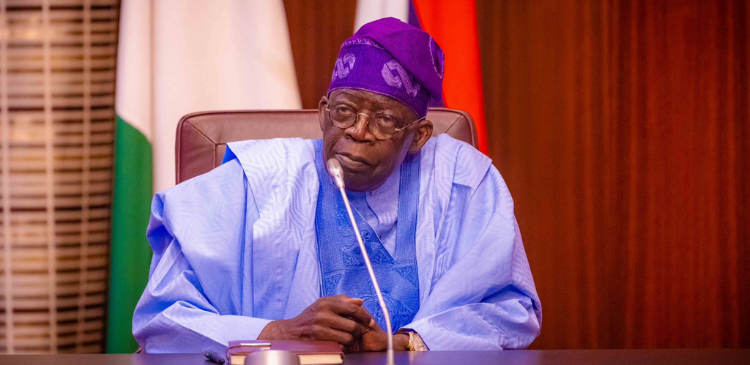President Bola Tinubu has affirmed that his administration’s economic reforms are starting to yield positive results, as efforts to tackle Nigeria’s longstanding challenges begin to take shape.
Speaking at the National Economic Summit on Tuesday, Tinubu highlighted key initiatives such as the removal of fuel subsidies and the unification of forex rates, which he believes are paving the way for sustainable economic growth.
“The theme of this year’s Summit, ‘Collaborative Action for Growth, Competitiveness, and Stability’, could not be more appropriate, as it encapsulates the pressing need for concerted efforts to address the multidimensional issues we currently face,” Tinubu said.
He acknowledged the economic turbulence Nigeria has experienced over the past few years, citing both global and domestic challenges, including the COVID-19 pandemic, fluctuating oil prices, internal security issues, inflation, and a reliance on oil revenue. These, he noted, have strained the country’s economic framework, but he remained optimistic about ongoing reforms.
“I am pleased to report that we are making significant strides in addressing several key issues, including regulatory bottlenecks and ease of doing business challenges. This progress should instill confidence in our collective ability to overcome these challenges,” Tinubu stated.

Among the reforms Tinubu outlined were the removal of fuel subsidies and the unification of exchange rates, which he said would foster a more competitive business environment. Additionally, the President stressed that his administration’s focus on economic diversification—especially in agriculture, manufacturing, and the digital economy—remains central to creating jobs and boosting income levels for Nigeria’s rapidly growing population.
“The over-reliance on oil revenue and lack of economic diversification have been longstanding structural weaknesses in our economy,” Tinubu said. “We are actively working to change that narrative.”
He also emphasized the importance of infrastructure investments, such as in roads, railways, and power plants, to enhance productivity and connectivity across the country. Regulatory reforms aimed at easing bureaucratic bottlenecks, especially in sectors driving entrepreneurship and innovation, are also progressing, he added.
“We are making significant progress in reducing bureaucratic bottlenecks, particularly in sectors that drive entrepreneurship and innovation,” Tinubu said, promising that these reforms would further improve Nigeria’s business climate.
Recognizing the crucial role of small and medium-sized enterprises (SMEs) in driving economic growth, the President announced several measures aimed at supporting entrepreneurs. These include the creation of MSME hubs, the introduction of single-digit interest loans for manufacturers, and the launch of a new Credit Corporation that will offer workers access to consumer loans at low interest rates.
As Nigeria continues to navigate its economic recovery, Tinubu urged all stakeholders to maintain faith in the government’s efforts. “This is a time for collaborative action. The progress we’ve made so far should give us the confidence that we can, and will, overcome these challenges,” he concluded.


